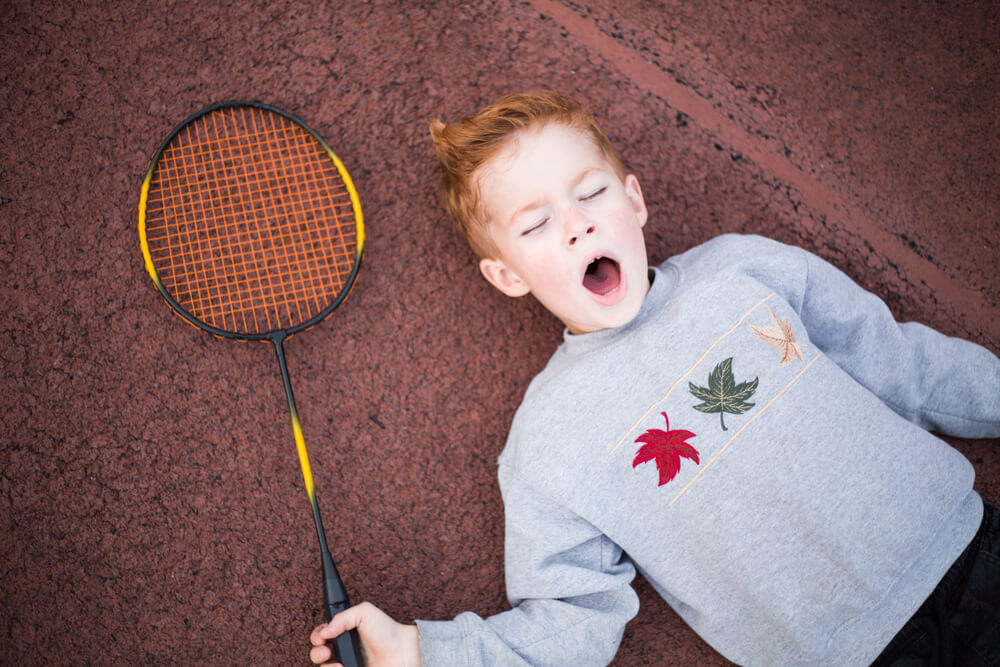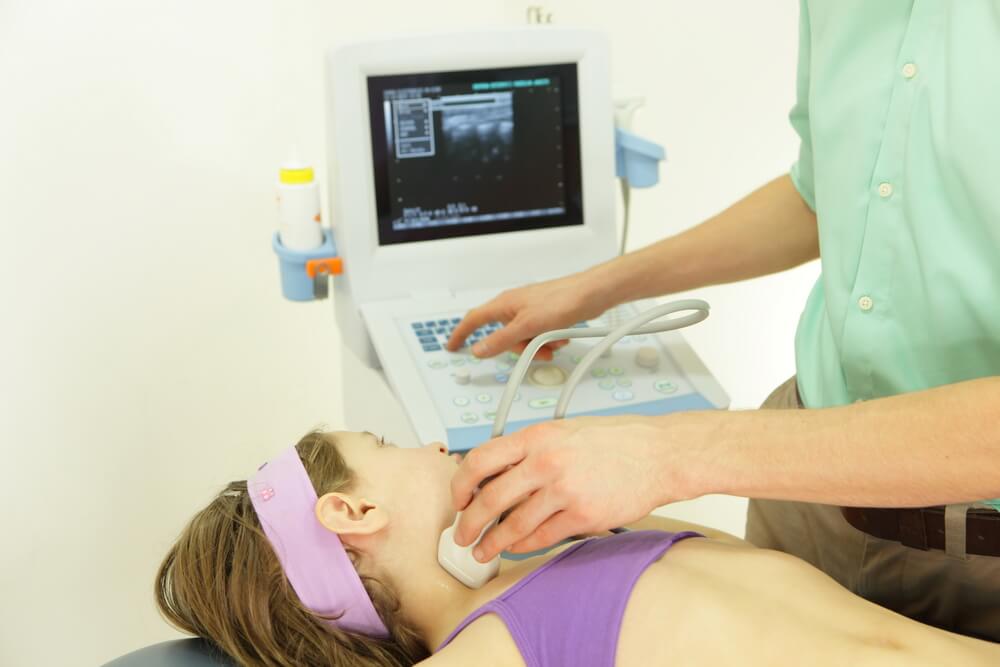Hypothyroidism in children occurs when the production of thyroid hormone is very low. This particular type of endocrine disorder can slow down a child’s growth. Hypothyroid child behavior also includes fatigue and cognitive delay together with constipation and weight gain.
Essentially, the thyroid gland is located in the neck and has an almost butterfly-like shape. The thyroid is responsible for the production of hormones which are consequently tied to proper growth and development. In case the gland can’t produce enough of these hormones, it’s possible to manage the issue with hormone replacement. Hypothyroidism in kids can be diagnosed in the very first month of life, which considerably increases the possibility of better outcomes.
Different Types of Hypothyroidism in Children
Types of hypothyroidism in kids can differ, making every single case rather unique and individual, with a specific treatment process.
Congenital hypothyroidism in children is caused by poor development of the thyroid during pregnancy. Screening tests for newborns can typically spot this rather quickly.
Autoimmune hypothyroidism in kids refers to the immune system attacking a healthy thyroid gland, which then affects its proper function. This condition is commonly called Hashimoto’s thyroiditis, and the most common cause is linked to chronic lymphocytic thyroiditis (CLT).
In terms of thyroid issues in children, the thyroid gland can be medically removed or damaged as a consequence of some other problem, such as thyroid cancer. This is often referred to as acquired hypothyroidism.
Another hypothyroid child behavior involves the lack of production of the TSH in the brain, which is a thyroid-stimulating hormone. Even though the gland itself may be healthy, it cannot function properly without this hormone. This condition is called central hypothyroidism and is often caused by hypothalamus/pituitary gland malformation or damage.
Symptoms of Hypothyroidism in Children

When it comes to the signs and symptoms of hypothyroidism in children, it’s rather useful to know as many of them as possible. After all, the most common symptoms of hypothyroidism in children can be easily attributed to something else and overlooked, such as constipation and sleepiness for example. In general, the symptoms of thyroid issues in children are rather similar to those in adults. However, some fall under specific hypothyroid child behavior, such as:
- Sleepiness and constipation
- Mood swings and slower reactions
- Puffy face and/or swollen hands and feet
- Weak muscles and slower growth
- Hoarser voice
- Very dry hair and skin
- Increased sensitivity to cold
- Heavy periods in adolescent girls
- Thyroid enlargement
The majority of parents will notice that there’s something wrong with their child’s health when the child’s growth rate drastically slows down. Kids won’t outgrow their clothes for way too long, or they’ll be noticeably shorter than their peers. Make sure to talk about this to your child’s pediatrician. When they suspect thyroid issues in children, pediatricians will usually refer the parents and their kid to a pediatric endocrinologist.
The two most common screening tests to determine whether there’s hypothyroidism present include TSH measuring, pointing to the amount of brain-produced hormone that the thyroid needs to function properly, and T4 measuring, pointing to the amount of thyroid-produced hormone.
If hypothyroidism is confirmed, don’t hesitate to schedule an appointment with a child hypothyroidism specialist in Florida as soon as possible. The sooner adequate treatment begins, the better the outcome will be.
Most Common Causes of Hypothyroidism in Children
Different factors can cause thyroid issues in children, mainly genetics, nutritional deficiencies, and cancer treatment.
Genetics
Even though it’s not all that common, hypothyroidism in children can be triggered by genetic mutations. There are certain risk factors when it comes to congenital hypothyroidism, such as having a twin, having a sibling suffering from hypothyroidism, and even being conceived with IVF. Also, prematurely born babies have an increased risk of central hypothyroidism. Expecting mothers with autoimmune hypothyroidism could pass it on to their babies.
Cancer Treatment
A child’s growth rate can be affected by cancer as well as cancer treatments. Radiation therapy can be connected to hypothyroidism in kids, especially in the cases where the pituitary/thyroid glands are targeted. Furthermore, about a quarter of kids who had a bone marrow transplant and went through ionizing radiation have to deal with hypothyroidism. However, this particular kind of hypothyroidism tends to resolve itself after a couple of years.
Nutritional Deficiencies
Hypothyroidism in kids due to nutritional deficiency is relatively rare, but again, not impossible. Too little or too much iodine can affect the function of the thyroid gland. The proper iodine intake largely depends on one’s diet. Also, certain over-the-counter meds and supplements can contain iodine, which is why it’s important to check the ingredients. Both iodine deficiency and an excessive amount of iodine can be linked to hypothyroidism.
Mother’s Hypothyroidism
Pregnant ladies affected by hypothyroidism can also pass this condition to their newborn children. After all, while the baby is still in the womb, it can only rely on the mother’s thyroid hormones. If the mother lacks the adequate production of thyroid hormones herself, the baby won’t get the needed amount either. Of course, with the right treatment and regular checkups, women with hypothyroidism can easily give birth to perfectly healthy babies.
Treatment for Hypothyroidism in Children

In general, the majority of kids affected by hypothyroidism can be successfully treated with the medication levothyroxine, which acts as a replacement for the thyroid hormone. Essentially, the med acts as a T4 hormone and therefore has to be taken every day and at the same time. This particular med comes in the form of a pill, and sadly, there’s no liquid alternative for the youngest kids. In case the child is too young to swallow pills, it’s possible to crush them for easier consumption. Kids can also chew on it. The best practice for infants is to use a pill grinder and then mix the contents with milk. Remember, though, that iron/calcium supplements should not be given to a child at the same time as levothyroxine.
Keep in mind that the child’s growing body will also need more thyroid hormone. This is why it’s crucial to have regular doctor’s appointments so that they can keep track of the child’s growth and hormonal levels. In case the doctor notices that the child’s thyroid hormone is starting to drop, they are likely to recommend a higher dose of levothyroxine.
Finding out that your kid is suffering from hypothyroidism can’t be easy for a parent, but it’s important to remember that this condition is very treatable. Even when they’re affected by it in early childhood, children can grow and develop properly with the right treatment. The most important thing is to take your child for regular check-ins and screenings to adjust the med dosage when necessary. If you’re not sure whether there’s a thyroid issue with your child or not, don’t hesitate to reach out to us at the Pediatric Endocrine and Metabolic Center. We treat hormones and metabolism disorders in kids and will make sure your child is well taken care of and ready to learn, grow, and laugh.


